On September 9-10, at the invitation of the Ministry of Foreign Affairs of the Republic of Korea (ROK), the Center for International Security and Strategy (CISS) of Tsinghua University organized Chinese experts to attend the second summit on Responsible Artificial Intelligence in the Military Domain (REAIM Summit 2024) in Seoul, the ROK. Co-hosted by the ROK, the Netherlands, Singapore, Kenya, and the United Kingdom, the Summit focuses on the risk and governance of AI applications in the military domain, gathering together more than 2,000 participants from 96 countries and regions. During the period, CISS experts participated in several thematic breakout sessions respectively.
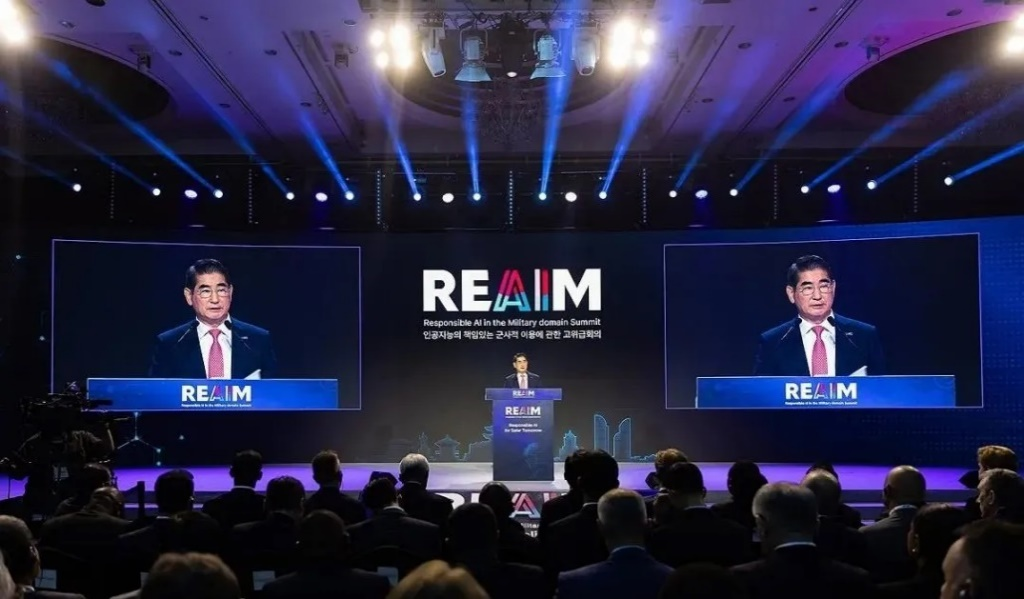
Opening Ceremony of the REAIM Summit 2024
On the morning of September 10, Xiao Qian, Deputy Director of CISS, was invited to give a keynote speech at the Breakout Session on “The Roundtable for AI, Security, and Ethics (RAISE): Forging Global Alignment through Multistakeholder Dialogue” organized by the United Nations Institute for Disarmament Research (UNIDIR) and Microsoft. Xiao mainly shared her understanding of “AI Security and Ethics” and introduced the U.S.-China Dialogue on Artificial Intelligence and International Security, a collaborative project between CISS and the Brookings Institution. She emphasized the positive role of the Track II Dialogue in promoting AI security cooperation, arguing that unofficial dialogues can provide an important platform for building trust and finding consensus on AI security between China and the United States. Besides, Xiao affirmed the uniqueness of the RAISE and the results it has achieved.
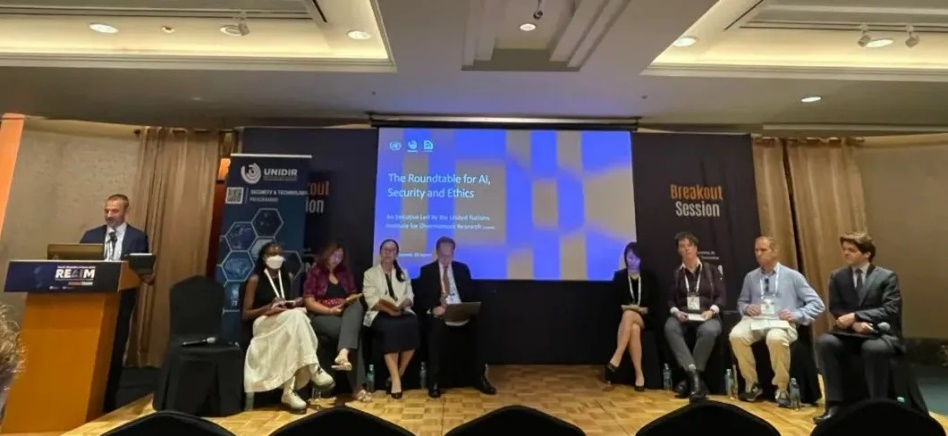
CISS Deputy Director Xiao Qian attended the Breakout Session on “The Roundtable for AI, Security, and Ethics (RAISE): Forging Global Alignment through Multistakeholder Dialogue.”
At noon on September 10, CISS held a Breakout Session on “Artificial Intelligence Security and Governance in the Military Domain,” inviting experts from universities, think tanks, and industries, including the Center for Humanitarian Dialogue (HD), Anthropic, Peking University, China University of Political Science and Law, American University, and the UNIDIR, to discuss two major topics: the potential risks of AI technology to international security and how to reduce risks and establish trust mechanisms for AI military applications.
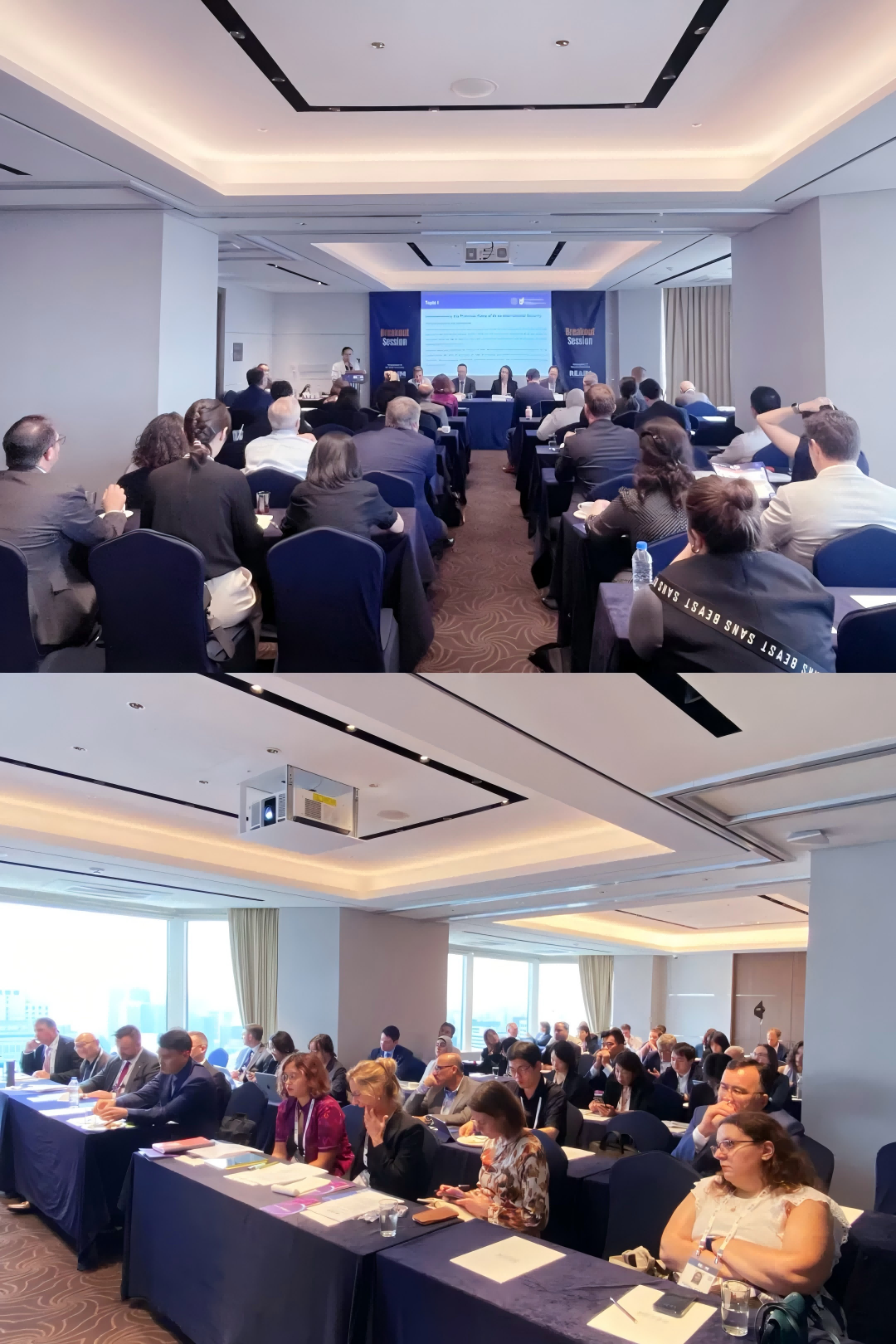
Breakout Session
The Breakout Session, moderated by Xiao Qian, Deputy Director of CISS, was divided into two topics. In Topic I, experts discussed the potential security risks related to AI and its applications. Participating experts believed that the potential risks of AI to international security mainly come from the technology itself, the application, and human beings and that the international community’s knowledge and understanding of the potential security risks should be continuously enhanced.
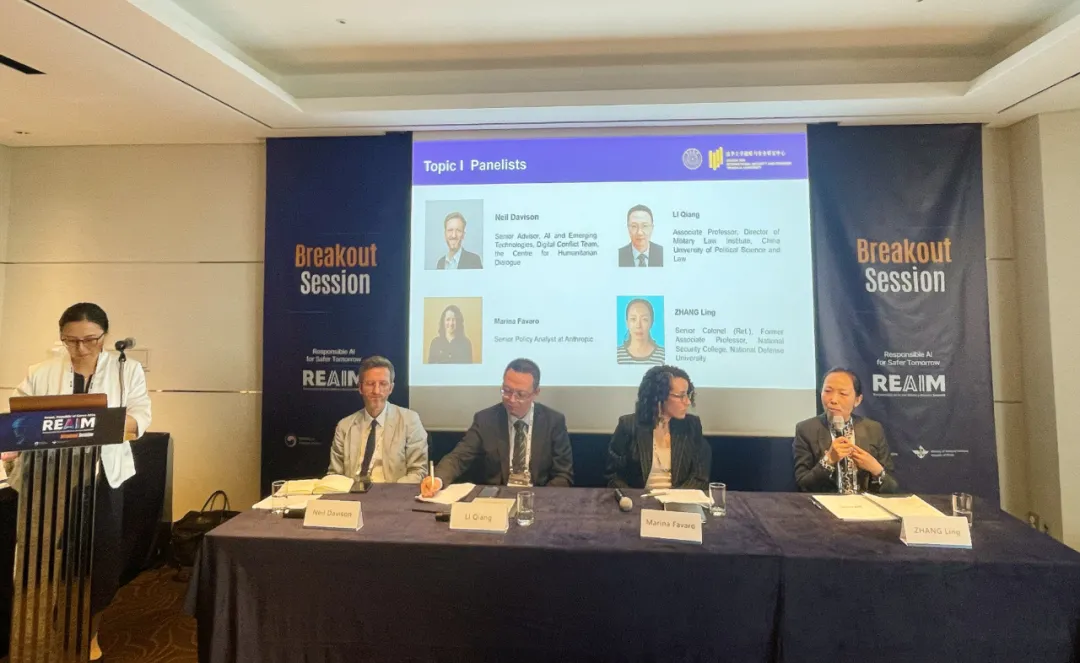
Topic I: Potential Risks of AI Technology to International Security
Topic II mainly focused on how to reduce the risks of AI applications in the military domain and its related governance issues. Participating experts believed that the participation of multiple parties, including state actors, international organizations, scientific research institutions, and the private sector, should be enhanced and that international cooperation should be promoted to formulate relevant governance frameworks, so as to jointly promote AI technology for the benefit of human society.
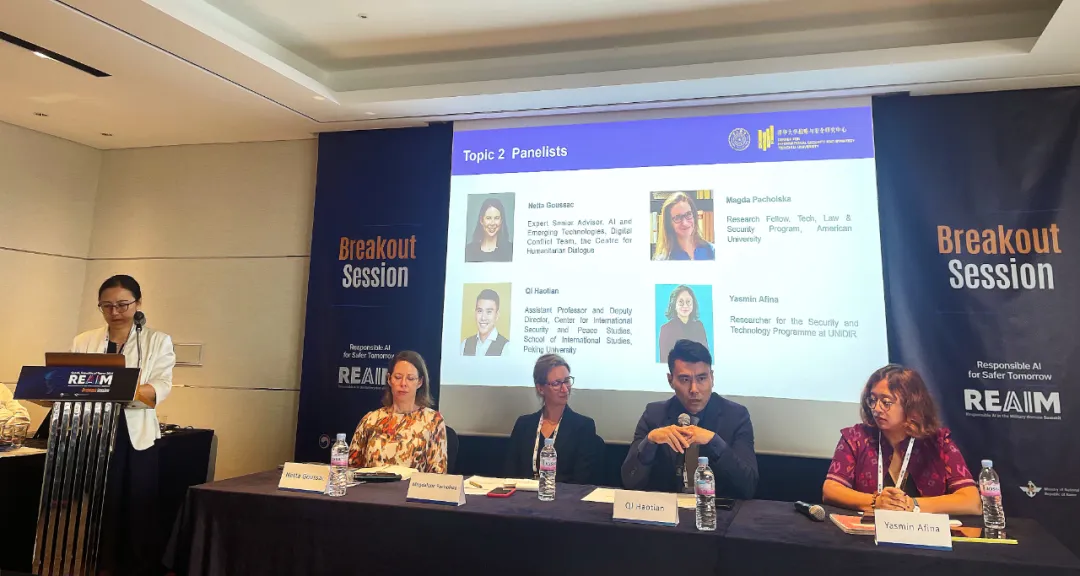
Topic II: How to Reduce Risks and Establish Trust Mechanisms for AI Military Applications
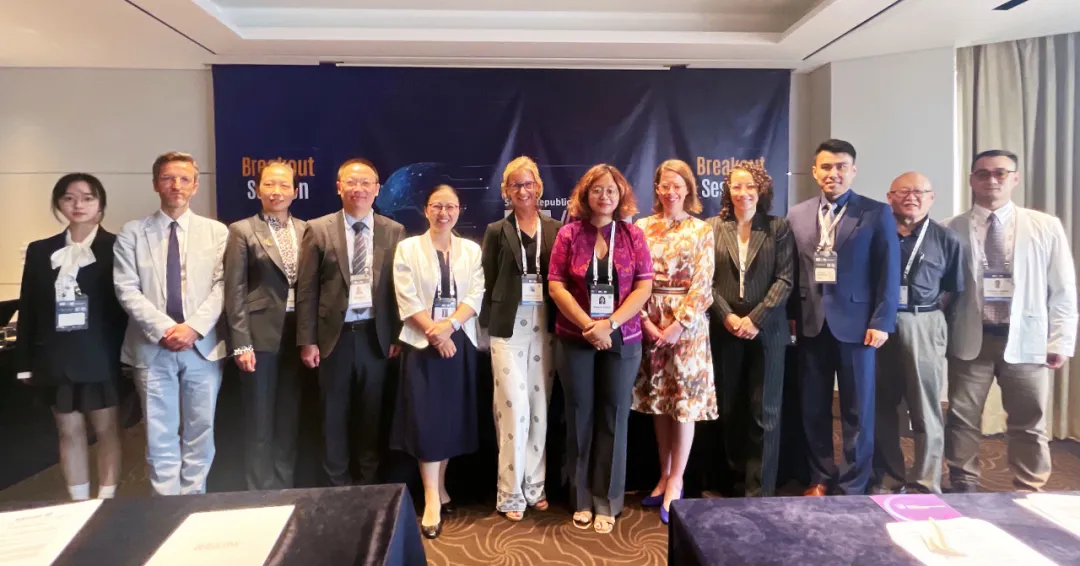
Group Photo of Participating Experts
